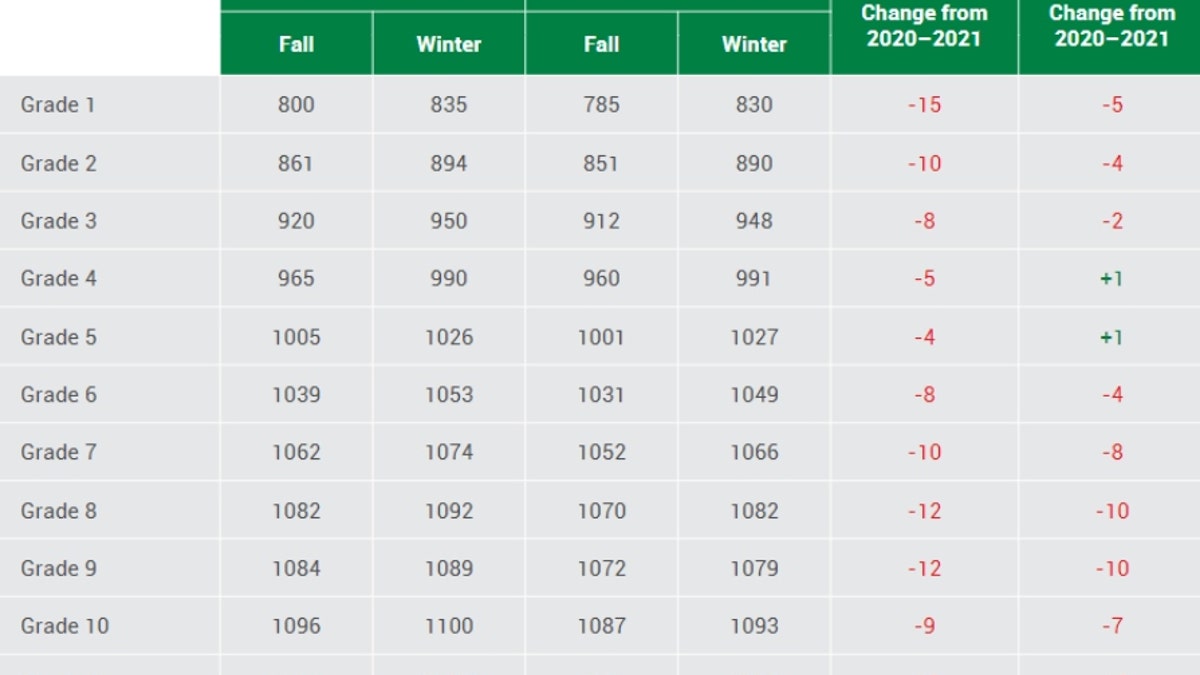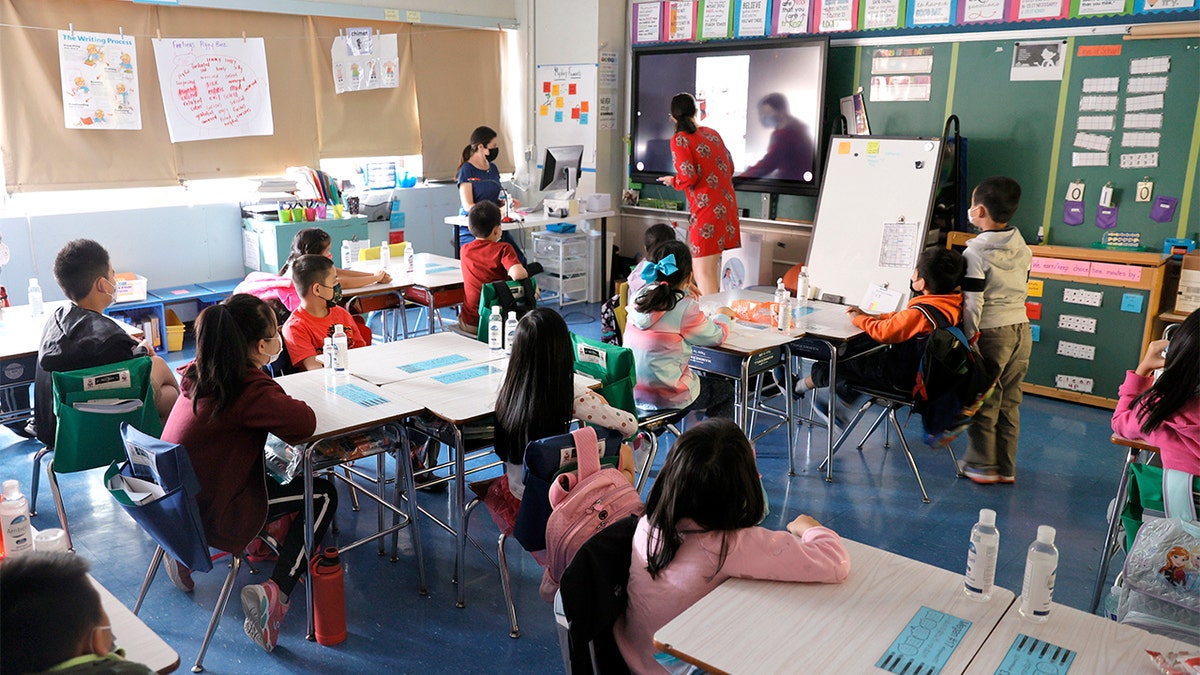Teacher shortages spread across the nation as educators leave the profession
Fox News senior national correspondent Rich Edson discusses how there has been a mass exodus of teachers leaving education on ‘Special Report.’
Children continue to be impacted by learning loss from the COVID-19 pandemic and school closures, a new report shows.
Students fared worse academically during the second year of the pandemic compared to the first year, when students earned lower scores than they did prior to the pandemic.
The trend suggests the impact of COVID-19 closures on student success continues to be felt, according to a study released Wednesday by education software company Renaissance Learning.
"All signs suggest that this is going to be a multiyear recovery," Gene Kerns, vice president and chief academic officer at Renaissance, said in a statement.
"We can reset instruction back to where it was pre-pandemic, but that isn’t going to instantly move students up to where they would have been had the pandemic not occurred," Kerns said. "For example, if you worked out every day and then stopped for two years, you aren’t going to be in the same shape as before the break when you return to the gym. We know what to do — and educators are rising to meet this great challenge — but it’s going to take time."
Renaissance's results are based on an analysis of standardized test scores for early literacy, reading or math during both the 2020–2021 and 2021–2022 academic years. The company's analysis included 4.4 million early literacy or reading assessments at 19,046 schools and 2.9 million math assessments at 12,754 schools, covering K-12 students in all 50 states and Washington, D.C.
JOHNS HOPKINS STUDY REIGNITES COVID LOCKDOWN DEBATE
For students in first grade or below, reading results were "concerning," according to Renaissance, which noted that school closures may have disrupted foundational reading skills for students around the ages of five and six. Early literacy scores for pre-readers at this grade level were 19 points lower on average this fall and 17 points lower in the winter, the study shows.

Literacy scores for K-12 students in 2022-2021 compared to 2020-2021. (Renaissance Learning)
Scores for independent readers at the first-grade level — or first-grade students who can read on their own — were 24 points lower in the fall and eight points lower in the winter, suggesting that pre-readers may have fallen further behind their peers who can read.
While there were slight improvements in fourth- and fifth-grade students this winter compared to last winter, math skills in middle and high school students have fallen significantly compared to pre-pandemic years.
Overall, however, students in all grades K-12 registered lower scores in math and reading during the 2021-2022 school year compared to the same period last year and prior to COVID-19.

Math scores for K-12 students in 2022-2021 compared to 2020-2021. (Renaissance Learning)
Meanwhile, student growth percentiles (SGPs), which measure how well students perform compared to their peers, are higher so far in 2021-2022 compared to 2020-2021.
Median SGP points increased three points to 48 and 50 in math and reading, respectively, but for "widespread recovery to be underway, we would need to see SGPs consistently well above 50, the threshold for typical pre-pandemic growth," the study notes. Few grades have surpassed 50 points over the last year.
Students in first grade, however, were still struggling with low-growth percentages in the 2021-2022 school year, which researchers attributed to three factors: starting kindergarten in 2020 when many schools were closed, data coming exclusively from in-school tests rather than a mix of in-school and remote records and an increased number of student test scores submitted this year.

Teachers at Yung Wing School P.S. 124 — Marisa Wiezel (who is related to the photographer) and Caitlin Kenny — give a lesson to their masked students in their classroom Sept. 27, 2021 in New York City. (Michael Loccisano/Getty Images)
At the same time, states across the country have been experiencing teacher shortages across all grade levels and especially in special education since the pandemic began.
CLICK HERE TO GET THE FOX NEWS APP
Experts have also pointed to the mental health impact COVID-19 and related school closures have had on children.
"They missed first days of school, months or even years of in-person schooling, graduation ceremonies, sports competitions, play dates and time with relatives," a December 2021 advisory from the U.S. Surgeon General states.
"They and their family may have lost access to mental health care, social services, income, food or housing. They may have had COVID-19 themselves, suffered from long COVID symptoms or lost a loved one to the disease. It’s estimated that, as of June 2021, more than 140,000 children in the U.S. had lost a parent or grandparent caregiver to COVID-19."
Fox News' Courtney O'Brien contributed to this report.








































